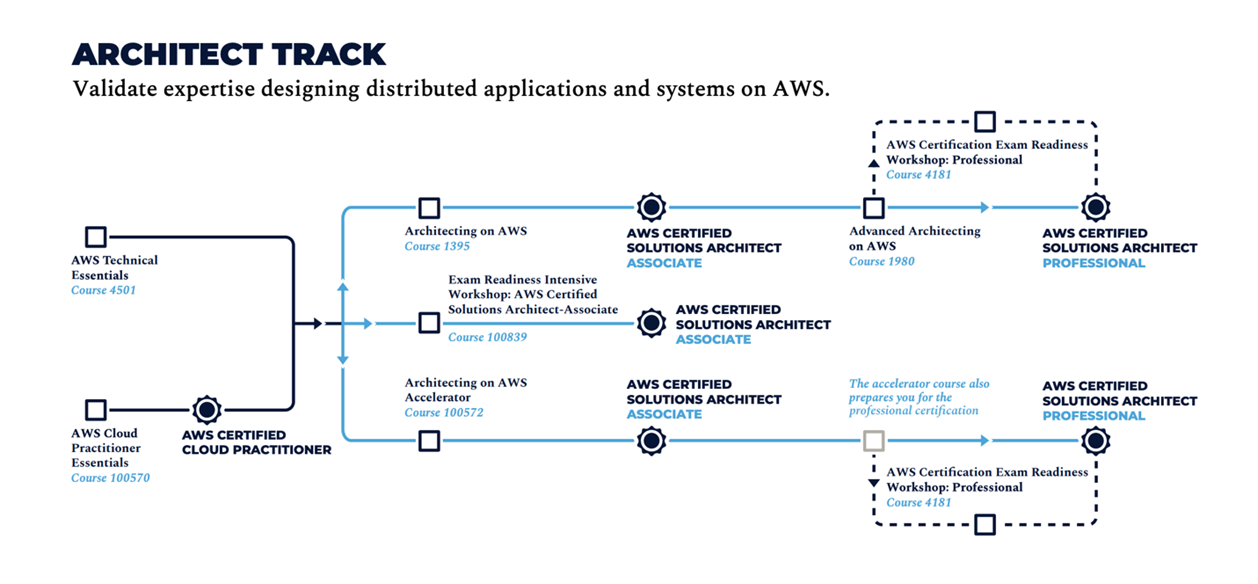AI at Work: The Top 7 Use Cases for AI

Amazon Web Services (AWS) has revolutionized how businesses approach technology and cloud computing. Understanding AWS's potential can be transformative for your team and organization. This guide delves into what AWS is, how it can benefit your organization, and why AWS certification training could be a pivotal step for your team.
Amazon Web Services, or just AWS, offers cloud computing services and resources on a pay-as-you-go basis, including computing power, storage options, networking, and databases. AWS enables businesses and individuals to build and run applications and services in the cloud, offering scalability, flexibility, and cost-efficiency.
This comprehensive and evolving platform includes services like Amazon EC2 for virtualized computing power and S3 for scalable storage solutions, positioning itself as a blend of infrastructure as a service (IaaS), platform as a service (PaaS), and software as a service (SaaS).
AWS is a powerhouse in the cloud computing realm, offering an extensive range of services that cater to many use cases across various industries. Whether you're in IT, running a large enterprise, or part of a growing startup, AWS has the tools and resources to serve you with a suite of tools and resources tailored to various applications:
Various AWS services cater to different organizational needs, offering specialized solutions that align with specific aspects of business operations.
AWS offers essential scalability, cost-effectiveness, reliability, security, and innovation.
According to the IT Skills and Salary report, over half of IT leaders say their team's networking skills fall between medium and low. Relatively few feel confident in their team's abilities in this area (only 7% say they have "high" confidence).
While adopting AWS, your organization may face challenges like skill gaps, cost management, and security concerns. By addressing these effectively through precise planning and skill assessments, your organization can begin leveraging AWS's resources and best practices.
With two-thirds of IT leaders facing a cloud skills gap, upskilling in-house teams becomes crucial. Certifications can bridge this gap, as shown in Skillsoft's IT Skills and Salary Report.
AWS certification training provides comprehensive resources, hands-on learning, recognized certifications and access to a global community. For IT leaders, this translates to increased team engagement, enhanced customer satisfaction, and better efforts in meeting regulatory compliance.
Certifications make a difference in other ways, too. They lead to shorter resolution times, help projects move faster, make deployments smoother, and ensure employee retention edges up as well.
AWS provides several benefits to IT leaders looking to upskill and train their teams. Here are some of the key advantages:
AWS offers a valuable resource for leaders to upskill and train their teams. Upskilling can boost several aspects of a business's IT operations. Empowering team members to achieve AWS certifications benefits the organization through improved team competence, enhanced credibility, and staying current with the latest technology trends.
AWS certification has the following benefits for your organization:
In addition to the benefits listed above, AWS training and certification can also help IT leaders to:
Overall, AWS training and certification can provide many benefits to leaders. By investing in AWS training and certification, IT leaders can help their teams develop the skills they need to succeed in the cloud-native world.
Everyone’s career takes twists and turns, so no two journeys will be the same. However, there are simplified paths that you can use as a guide or map for landing your ideal job or earning a certification. For an architect starting from the very beginning, it may look something like what’s illustrated below. You can find more examples here.

What this shows is a map to the finish line. It shows a starting point, the journey through the middle, and then the final stages before completion. But what does the end look like for you?
This is one of the best places to start. Ask yourself what you want to do or accomplish. What interests you? Are you after a certification or new skills? Answering questions like these can help bring clarity to what the journey ahead may look like — or at least the first few steps.
Keep reading to get more tips and guidance:
Remember, this is just one potential career journey. You can take many different paths to achieve your goals in the AWS Cloud and AWS services field. The most important thing is to learn, grow and seek opportunities to gain experience.
AWS offers tech professionals at all levels unprecedented opportunities to enhance skills, innovate, and drive organizational growth. Explore certification training options through Global Knowledge and Skillsoft for comprehensive cloud mastery.
Transform your team with AWS skills. Discover comprehensive AWS certification training at Global Knowledge and Skillsoft, and start your journey to cloud excellence today.

